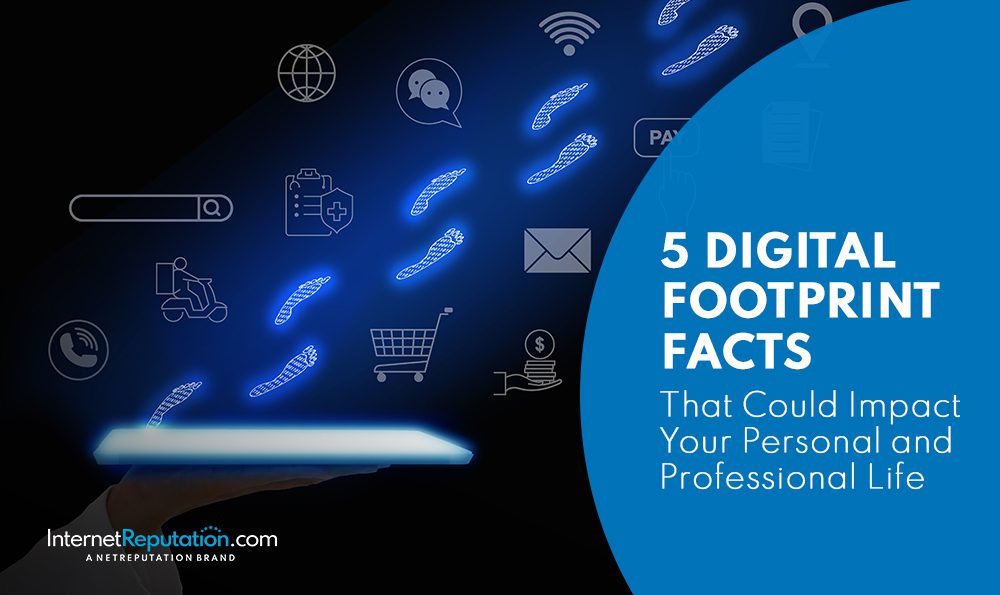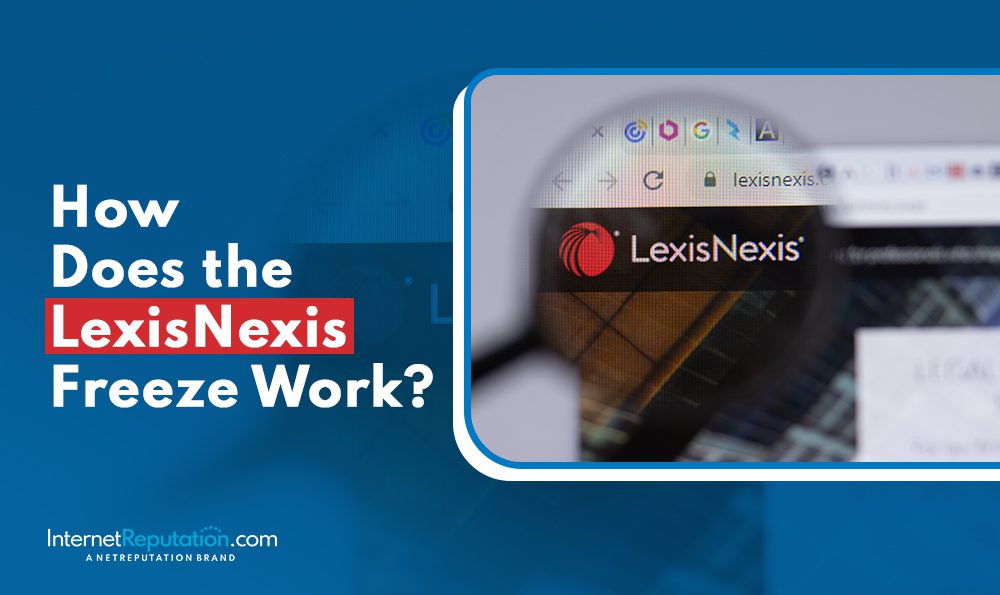5 Digital Footprint Facts That Could Impact Your Personal and Professional Life

Your digital footprint is the trail of data you and other internet users leave behind when using the internet. It includes everything from your social media profiles to the websites you visit. Managing it is essential to protecting your privacy and reputation.
What Is a Digital Footprint?
A digital footprint refers to the data and information you leave behind as you navigate the web. This includes your social media activity, online purchases, browsing history, financial data such as credit card details and account numbers, and information submitted through online forms. It’s important to know that your digital footprint comes in two forms:
- Active Footprint: Information you intentionally share, such as posts or comments on social media.
- Passive Footprint: Information collected without knowledge, like browsing habits or location data.
Both types of footprints contribute to your online presence and can influence how others perceive you.
Types of Digital Footprints
A digital footprint can be categorized into two main types: active and passive. Understanding the differences between these two types can help individuals manage their online presence more effectively.
Active Digital Footprints
An active digital footprint refers to the information that individuals intentionally share online. This can include:
- Posting on social media platforms
- Signing up for newsletters or online services
- Leaving online reviews or ratings
- Shopping online and making purchases
- Creating accounts on websites or mobile apps
- Registering for coupons or promotions
- Downloading and using shopping apps
Active digital footprints are created when individuals deliberately share information about themselves online. This type of footprint can be managed by being mindful of the information shared online and adjusting privacy settings on social media platforms and websites.
Passive Digital Footprints
On the other hand, a passive digital footprint refers to the information collected about individuals without their knowledge or consent. This can include:
- Websites use cookies and tracking scripts to collect browsing history and online behavior
- Data collected by mobile apps without permission
- Information shared by data companies with third-party organizations
- Online forms and surveys that collect personal data
- News apps and online news sources that collect browsing history and reading habits
Passive digital footprints can be more challenging to manage, as individuals may not be aware of the information being collected about them. However, using privacy-focused browsers and search engines and being cautious when downloading mobile apps can help minimize the amount of data collected.
Why Your Digital Footprint Matters
Your online activity can significantly shape how others view you. Employers, colleges, and even strangers may form opinions about you based on your digital footprint. Managing it effectively can leave you vulnerable to identity theft, cybercrime, and reputation damage.
A well-maintained footprint can enhance your professional opportunities, while a careless one can lead to lost job offers, missed opportunities, or worse.
How Your Digital Footprint Affects Personal Life and Online Reputation
Your digital footprint has a direct impact on your personal life. Information shared online—whether intentionally or not—can be used against you. Social media posts, comments, and even photos can stay online forever. Once it’s out there, it’s hard to take back.
Sharing personal details, like your location or daily routine, increases identity theft risk. Cyberbullying also remains a significant concern, especially for those who leave behind too much personal information for others to exploit.
Additionally, your digital reputation matters. Potential employers and peers may judge you based on what they find online. A single post or comment can negatively affect your view, making it crucial to think before sharing anything publicly.
How Your Digital Footprint Affects Professional Life and Social Media Presence
In your professional life, your digital footprint can make or break opportunities. Employers frequently research job candidates online, reviewing social media profiles, blogs, and comments. A strong, well-managed digital footprint can increase your chances of landing your dream job, while a poor one can block those opportunities.
Networking and career growth are also closely tied to your online presence. Participating in industry-related conversations, sharing insights, and curating professional content can enhance your digital reputation and boost your chances of career advancement.
What Are the Facts About Digital Footprints?
1. Your Digital Footprint Is Permanent
Once information is shared online, it isn’t easy to erase. This can impact a person’s reputation, job prospects, and educational opportunities. Responsible information sharing is critical to safeguarding one’s digital identity.
2. Your Digital Footprint Is Traceable
Third parties, including data brokers, can monitor and analyze your online activity. This data can be sold or used without consent, making it important to review privacy settings and limit personal information sharing.
3. Your Digital Footprint Can Be Used Against You
Personal information from your digital footprint can be exploited in identity theft and online scams. To prevent this, use strong passwords, enable two-factor authentication, and monitor your accounts regularly.
4. Your Digital Footprint Can Be Used for Targeted Advertising
Companies track your online behavior to serve personalized ads. This includes data collected from online shopping activities, which can be used to tailor advertisements to your preferences. While convenient, this raises privacy concerns. Limiting data tracking through ad blockers, privacy settings, and clearing cookies helps mitigate these risks.
5. Your Digital Footprint Can Be Used for Identity Theft
Hackers can use your online data to impersonate you, steal sensitive information, or commit fraud. Protect your identity using strong passwords, two-factor authentication, and cautious sharing of personal information on social media.
How Can You Manage and Control Your Digital Footprint?
Effectively managing your digital footprint requires ongoing attention to your online presence and activity.
- Monitor Your Online Presence: Regularly search for your name and review any public content related to you. This helps you stay aware of how you appear online.
- Think Before You Post: Consider the long-term impact of sharing personal information or controversial opinions. Once it’s online, it’s hard to take back.
- Use Privacy Settings: Use privacy controls on social media and other platforms to limit who can view your content.
Protecting Your Online Reputation
Having a positive online reputation is crucial for individuals and businesses. A negative digital footprint can harm one’s reputation and career opportunities. Here are some tips for protecting your online reputation:
- Monitor your online presence regularly by searching for your name and social media credentials
- Adjust your privacy settings on social media platforms and websites to control who can see your information
- Be mindful of the information you share online, and avoid sharing sensitive or personal data
- Use strong passwords and two-factor authentication to protect your online accounts
- Regularly review and update your online profiles to ensure accuracy and consistency
- Use online reputation management tools to track and manage your digital footprint
By following these tips, individuals can protect their online reputation and maintain a positive digital footprint. Remember, a positive digital footprint can open doors to new opportunities, while a negative one can close them.
Seek Professional Help if Needed
If managing your digital footprint feels overwhelming, consider seeking professional help. Online reputation management firms specialize in helping individuals and businesses maintain a positive online image. These services can assist with removing negative content, cleaning up your online presence, and protecting your personal data from exploitation. They also monitor your digital footprint for potential risks, helping you avoid reputational damage.
Working with an experienced reputation management firm provides tailored solutions to safeguard your privacy and enhance your online reputation. By entrusting professionals, you can take control of your digital identity and ensure long-term protection and positive visibility in the online space.



